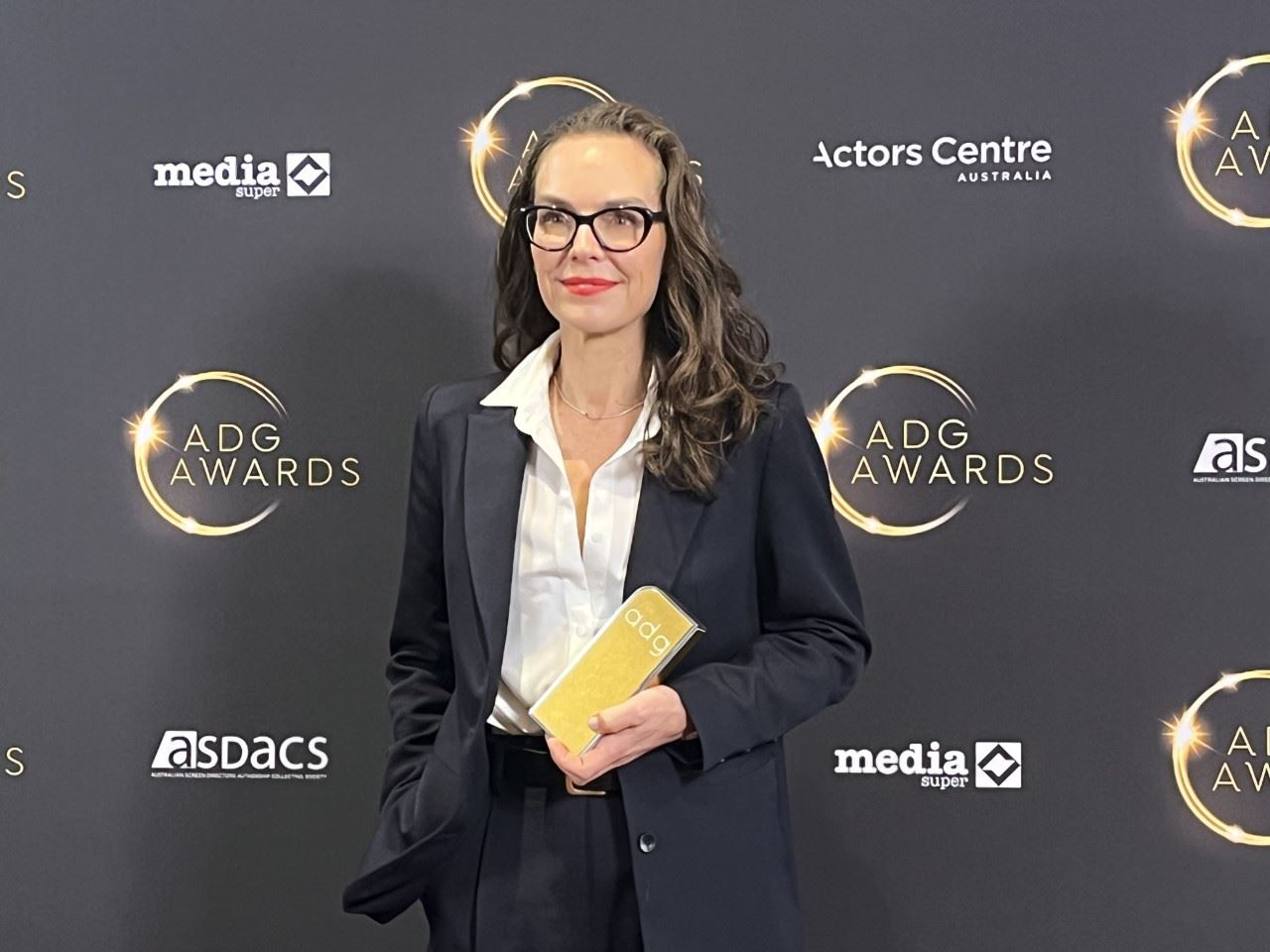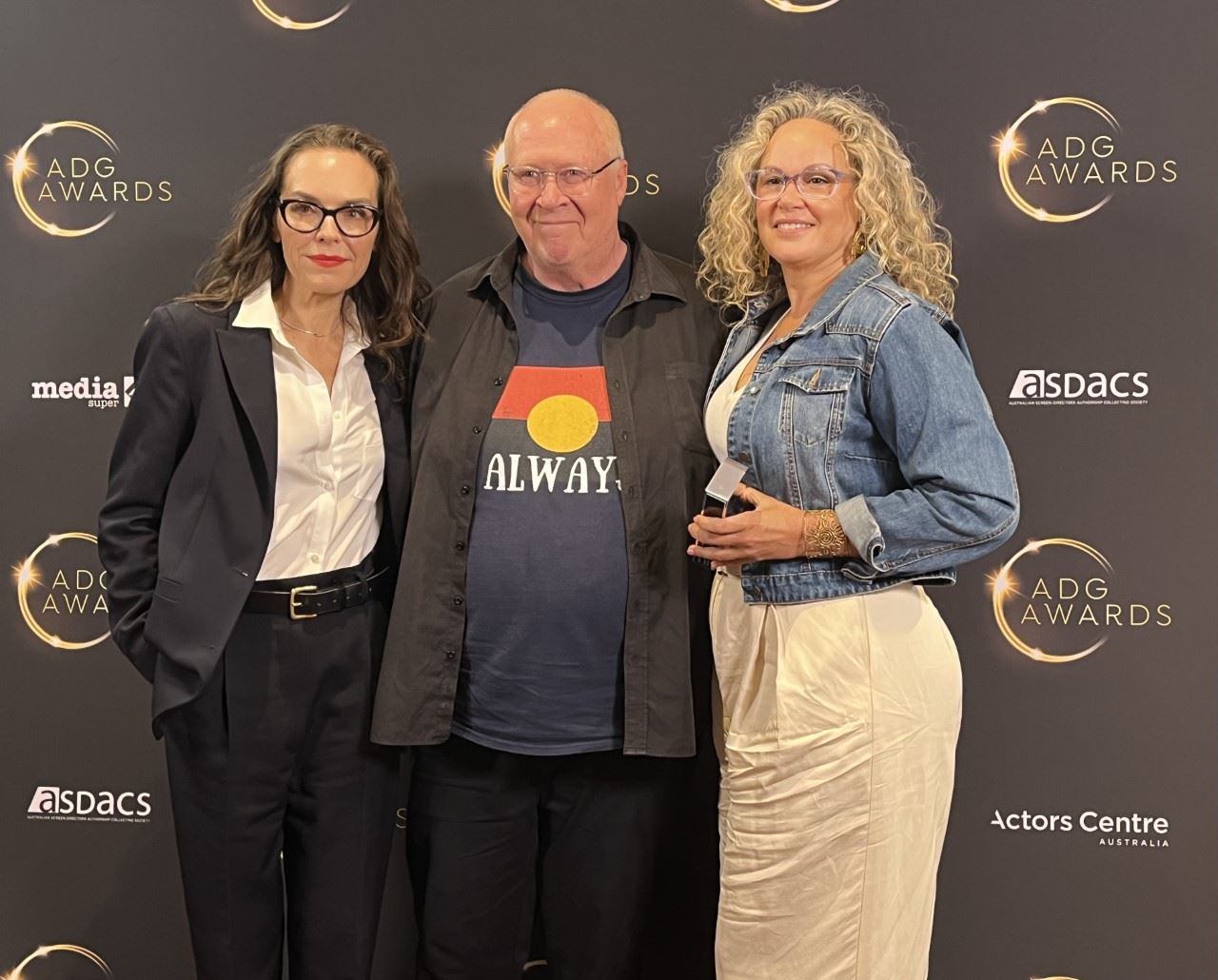 |  |
| I acknowledge that we meet here today on the Wangal land of the Eora nation – and pay my respects to elders past and present and all First nation people here today. I recognise that their sovereignty was never ceded. I’m sincerely grateful to Rowan Woods and to the Australian Directors’ Guild. So it is going to be hard to adequately put into words what receiving the Cecil Holmes award, and from a cherished peer and community, means to me. I want to give it a go by framing it through the prism of what it means to be Australian and what it means to be a filmmaker – and how the two intersect in meaningful ways.I am a migrant to this country from the UK. My partner, Andrew is also a migrant or refugee, from Myanmar. The father of my children is European and the mother of Andrew’s children is a Butchulla women from K,gari or Fraser Island – Our blended family is a complex amalgam of skin colour and cultures. So the only way it functions – when it does – is that everyone has a voice, and is encouraged to express it, even when opinions differ. And they do – often and vociferously. In a reductive way, perhaps, this is how I think about what it means to be Australian – to live in a complicated place, with some painful histories, ample contradictions and uncomfortable intersections. To thrive in it – requires a curiosity about others and involves a responsibility to get comfortable with that which may not be familiar. To be Australian and live in Australia requires a capacity for re-imagining what community, family and identity might look like. Acquiring a sense of belonging in Australia demands that we consider what we want to belong to.To be a filmmaker also requires a curiosity about others, implies a responsibility to consider that which is unfamiliar and insists upon an infinite capacity for re-imagining. It also carries with it the individual and social privilege of telling one’s story – of being given a voice. The privilege I refer to – is contingent upon having support to sustain that voice.From a relatively young age – because of the ecologies of care, kindness and patience that I encountered in Australia – I was supported to become a filmmaker – public high school, public healthcare, including mental health, publicly funded university and film school. When I became a filmmaker I was supported by government funded film finance policies and, significantly, I was welcomed into the ‘non-profit’ community of film and television directors known as the Australian Directors Guild.If it had not been for the founding film directors, amongst them, Gillian Armstrong, Phil Noyce and Stephen Wallace, and their establishment of a guild and, then later, directors Graham Thorburn, Donald Crombie, Ray Argall further nourishing a community of directors I would not have had something to belong to… My identity as a filmmaker would have not meant as much because it would not be connected to a history of filmmakers sustaining each other as they interrogate the stories that need to be told about the place in which they live. The other communities I have belonged to, are those of producers, amongst them John Maynard, Bridget Ikin and Sandra Levy. And then of course, as a student at AFTRS, Rowan Woods, Robert Connolly, Dan Nettheim, Tony McNamara – quite a lot of men actually…nonetheless…Cecil Holmes understood that to interrogate what it is to be Australian, as a filmmaker, required not only that he compose his own narratives, but that he support other filmmakers to create multiple perspectives on what it meant to them to live in Australia. He understood that there is an intrinsic responsibility that accompanies the privilege of having a voice – and that is to create space for other voices to co-exist and create – to give light to the multiplicity of stories – that make up our national identity. My great privilege and small contribution has been to participate in the ecology of care that is the Australian Directors’ Guild and to take part in sustaining our wonderful, brilliant, contradictory, diverse, eclectic community of filmmakers. This community has been evidenced recently in the work of Ana Tiwary at the guild – with her program of forty directors. She brings to light – just how complex and diverse Australian directors are. And this diversity has been supported by all of the guilds Executive directors over the last decade – Richard Harris, Kingston Anderson, Diana Burnett, Alaric McAusland and the many directors who have given their time freely to participate on the board. When Ana posted a few days ago an NYT article about Freudenfreude – I thought to myself this is what the guild and the Cecil Holmes Award is all about… The definition of Freuden freude being … Finding pleasure in another person’s good fortune, Viewing individual success as a communal effort. Showing active interest in someone else’s happiness. Sharing credit for your successes with others. Turning oneself into a spectator of other’s joy. It’s what at its best, a family can be, a community can be, and being part of a national identity can be… It is also what the current campaign to parliament for filmmakers has been about….Making it Australian. |